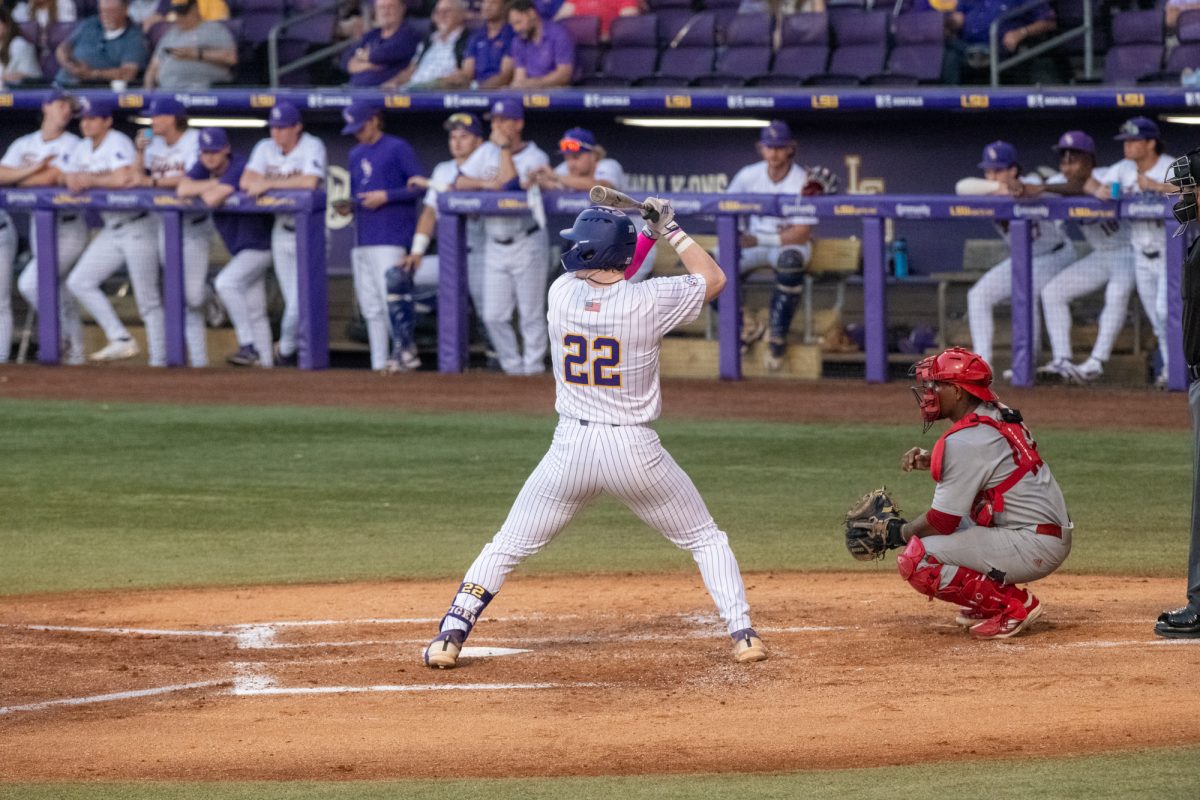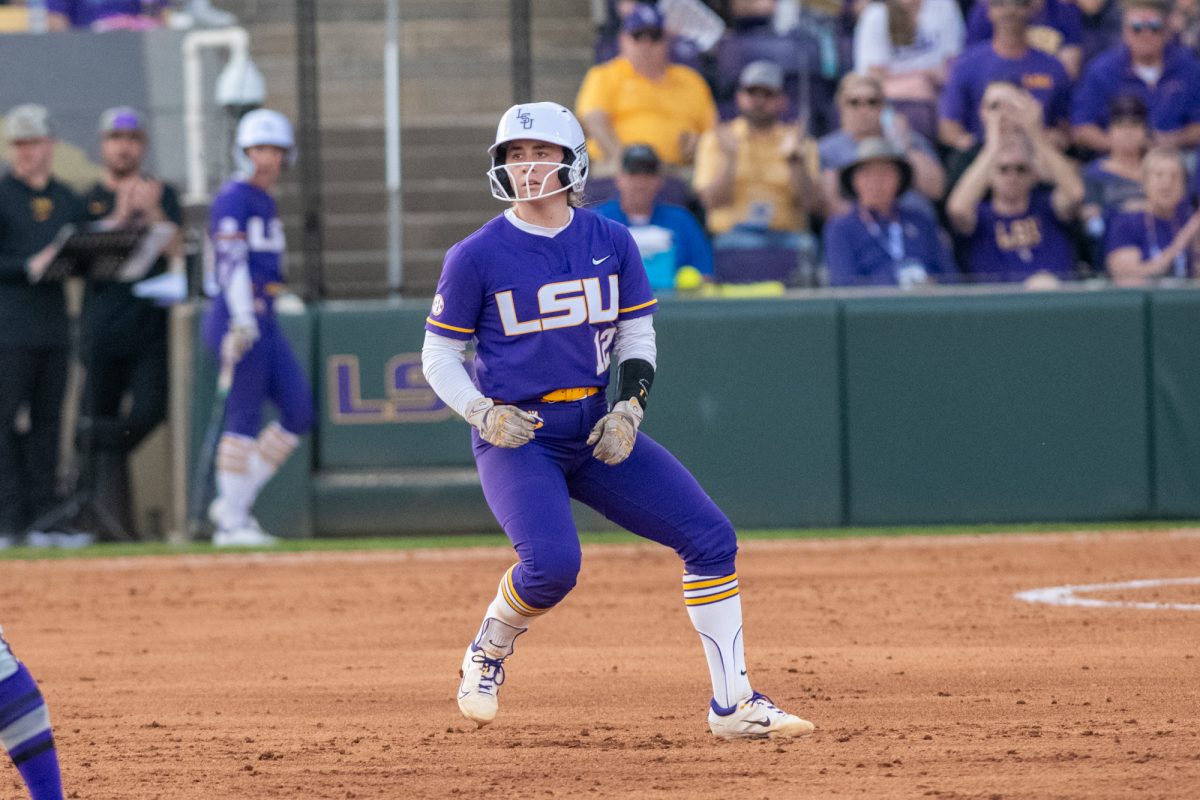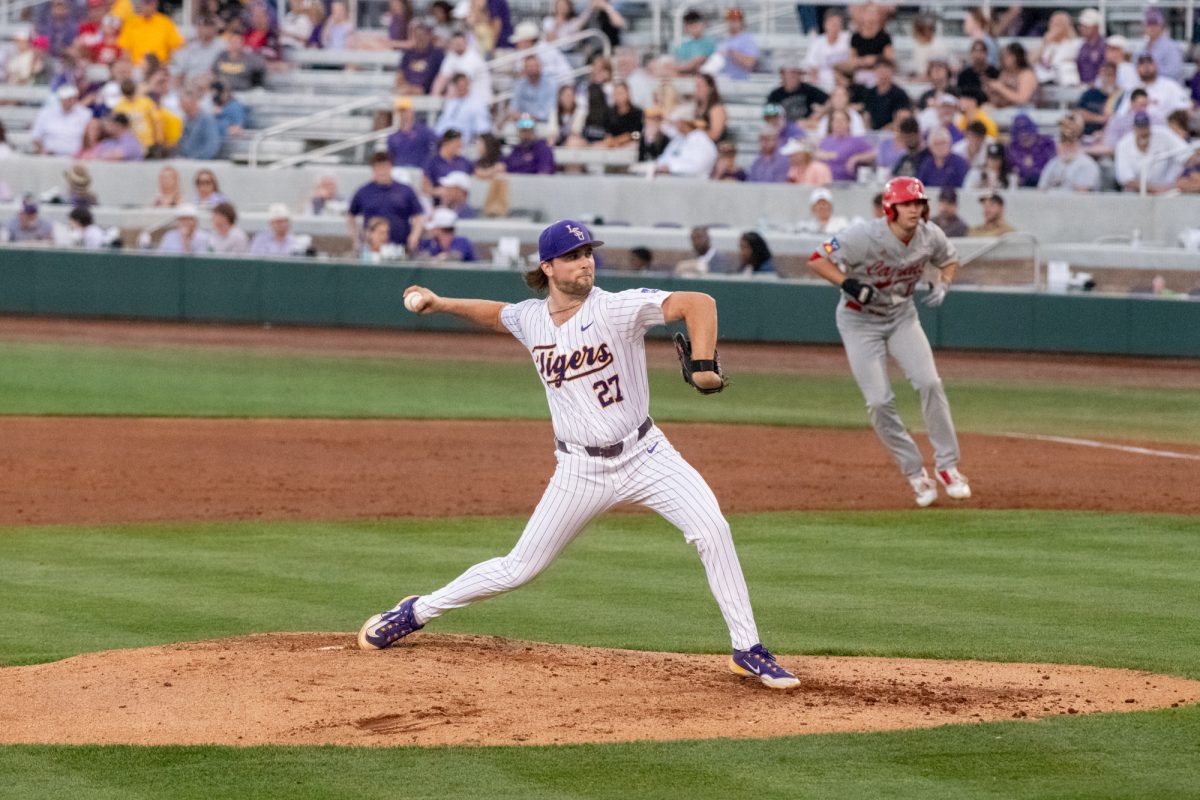A practice court is to a coach as a classroom is to a teacher. That’s the analogy new men’s basketball coach Trent Johnson uses when explaining his closed practice policy.The media will not regularly be allowed to observe LSU men’s basketball practices under Johnson’s rules, a significant departure from former coach John Brady’s open door policy.Kent Lowe, senior associate sports information director, said Johnson’s policy is consistent with the vast majority of Division-I programs.”I knew it was what he did at Stanford, and I expected it because of the way college basketball is today,” Lowe said. “He considers practice his classroom. He’s like a teacher, wanting to teach his class in private. That’s his style. That’s his decision.”Lowe has served as a sports information director for Johnson, Brady and legendary coach Dale Brown — all of whom he says possess different opinions on media access.The media policy for Brown, who coached the Tigers from 1972-1997, differed through the years.Women’s basketball associate head coach Bob Starkey was an assistant coach for Brown during the early 1990s. He said Brown’s media policy changed depending on the maturity of his team.”I remember with younger teams there was less media at practice,” he said. “He wanted them locked in and concentrated on practice. He didn’t want anyone there who would alter their focus.”Starkey said different situations require adapted media philosophies. The women’s team, for instance, needs publicity and will always welcome the press to watch practice.”Each team, each coach, has an individual thought on it,” he said. “I think I understand why coach Johnson is doing what he’s doing.”Under Brady’s 1997-2008 tenure at LSU, journalists could swing by practice with little notice, interview players and patch together quick stories.”If you look at the last four or five years, I think what coach Brady did, as far as open practices and open accessibility, was an anomaly in some respects,” Lowe said.Brady, now coach for Arkansas State, said his policy was based on his belief in all-around transparency.”I never had anything to hide,” Brady said in a phone interview from Arkansas. “I was pretty accessible.”But Lowe said the accessibility did come with a price.”Your good players are going to be the ones who will be interviewed all the time,” he said. “A lot of these guys were being interviewed about five days a week. I don’t think people are as fresh or good in answers the 5th and 6th times as they are the first time.”Johnson said he will make players available for interviews as they are needed. “I don’t like the kids speaking until they know what’s going on,” he said. “There will be opportune times when the kids will be available.”Lowe said he anticipates player interviews will be held after Saturday games, before or after Monday’s practice and after Thursday’s practice.”Certainly we’re going to do everything we can to make sure the media get their quotes,” he said.For now, Lowe remains undecided about whether the trend of closed practices is good for men’s basketball. “I don’t know if it’s wrong or right, good or bad, but my job is to make sure the media get what they need,” he said.—-Contact Amy Brittain at [email protected]
Johnson favors closed practice
November 4, 2008







